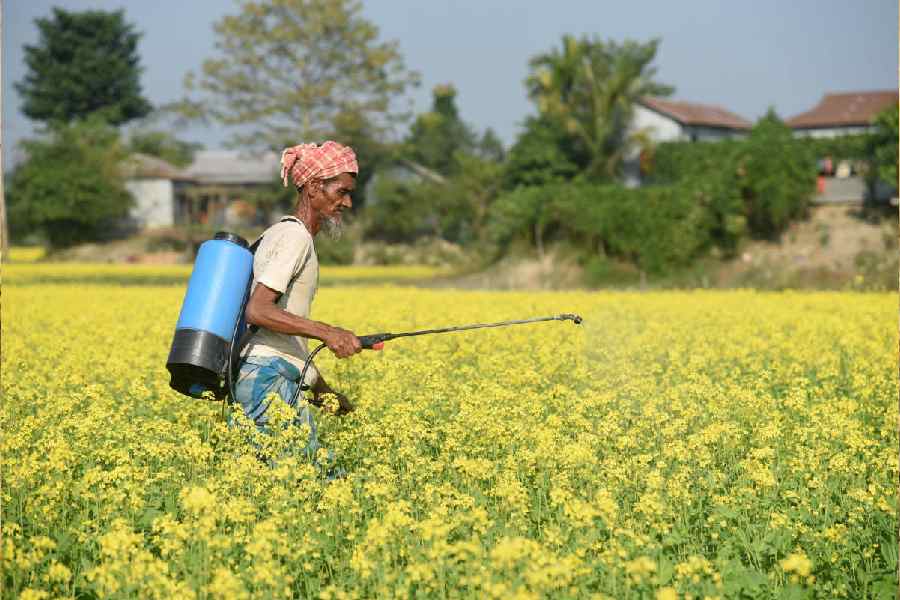Farm organisations and agriculture experts have advised finance minister Nirmala Sitharaman to ramp up investment in agricultural research, rationalise fertiliser subsidies, and develop infrastructure to enhance the sector’s resilience to climate change.
During the two-and-a-half-hour pre-budget consultations, stakeholders called for a substantial increase in the budget allocation for the Indian Council of Agricultural Research (ICAR) from ₹9,500 crore to ₹20,000 crore. Indian Chamber of Food and Agriculture (ICFA) chairman M.J. Khan emphasised the need to make “massive investments in agriculture R&D” to drive growth and boost incomes.
The Modi government is set to present its annual Budget for 2024-25 next month.
Experts suggested the consolidation of all agriculture-related subsidies and funnelling them to farmers through Direct Benefit Transfer (DBT). They also recommended an increase in the retail price of urea, which has been unchanged since 2018, and the promotion of bio-fertilisers and foliar fertilisers through subsidies.
Bharat Krishak Samaj chairman Ajay Vir Jakhar proposed separating agricultural funds for education and research. He said that even though agricultural research yields economic returns that are ten times higher than other investments, budget increases over the past two decades have lagged inflation rates.
They also urged the government to disband the committee on minimum support prices (MSP), commission the framing of a new agricultural policy for India, and change the funding ratio for human resource development in centrally sponsored schemes from 60:40 to 90:10, with the central government covering 90 per cent of the costs for five years.
Experts also recommended increasing the budget allocation for APEDA from ₹80 crore to ₹800 crore to enhance farm exports, creating district export hubs, and launching a National Goat and Sheep Mission.
Former CACP chief and agricultural economist Ashok Gulati said the discussions had focused on climate change and the fickle monsoon forecasts which have badly impacted farm sector growth that has languished at 1.4 per cent.
In a separate discussion, micro, small, and medium enterprises raised issues related to capital access and demanded reforms in bank loan rating and non-performing assets classification policies.











